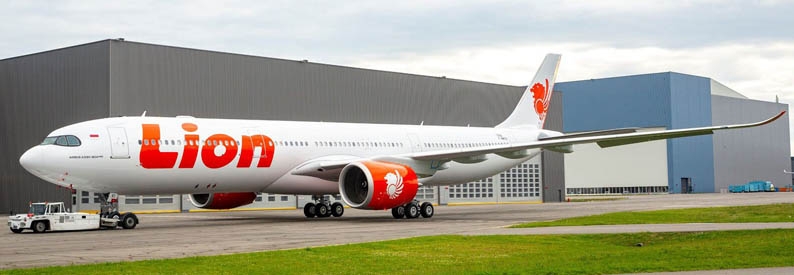PHU Secures Hajj Flights With Lion Air, Garuda, Saudia

The Directorate General of Indonesia’s Hajj and Umrah Agency (PHU) has inked pivotal agreements with Lion Air, Garuda Indonesia, and Saudia to participate in Indonesia’s official 2025 Hajj pilgrimage programme. Under these contracts, the three carriers will operate direct flights from 13 Indonesian airports to Saudi Arabia during the Hajj period, ensuring increased capacity and competitive pricing for millions of pilgrims.
As part of the deal, Saudia will deploy its Boeing 777-300ER aircraft for Hajj flights, operating alongside Lion Air’s state-of-the-art Airbus A330-900N fleet. Garuda Indonesia, aiming to regain its historical prominence in Hajj operations, will also employ its own Boeing 777-300ERs along with additional aircraft. These strategic moves come as the Indonesian government seeks to expand capacity, lower flight costs, and introduce healthier competition in response to past criticisms regarding Garuda’s operational performance and high fares.
Lion Air will focus on connecting regions in western Indonesia with Saudi Arabia by operating its A330neo on the route between Padang, Banjarmasin, and Madinah. The carrier anticipates carrying over 11,600 pilgrims on its Hajj flights scheduled for early June 2025. This route expansion reflects Lion Air’s commitment to supporting the growing demand for pilgrimage travel from Indonesia, the world’s largest Muslim nation with more than 241 million adherents.
Meanwhile, Saudia, which currently operates scheduled flights to Jakarta Soekarno-Hatta, is establishing a dedicated Hajj base at Surabaya. This strategic move is designed to target Muslim pilgrims in eastern Indonesia, thereby broadening its market reach. With Saudia commanding the largest share of weekly seat capacity on the Indonesia-Saudi Arabia route at 39.08%, the airline’s expansion into Surabaya further solidifies its dominant position while catering to a wider geographic spread of pilgrims.
Garuda Indonesia, historically the state-owned carrier with a majority share in Hajj traffic, is also stepping up its game. The airline has earmarked 14 aircraft for Hajj operations, including one on reserve. This allocation comprises six aircraft from its own fleet, two from subsidiary Citilink, and six wet-leased units. Notably, Garuda has issued a Request for Proposal (RFP) for the wet-leased aircraft earlier this year, targeting models from the Airbus A330 and Boeing 777 families. The planned wet-lease period spans 2.5 months from May 1 through July 10, 2025. This diversified fleet strategy comes as the government, via agencies like the PHU, aims to reduce Garuda’s historical dominance by injecting greater competition into the market.
According to ch-aviation capacities data, the current weekly seat capacity on the Indonesia-Saudi Arabia corridor is led by Saudia (39.08%), followed by Lion Air (33.81%), Garuda Indonesia (21.23%), and Citilink (5.88%). In the first week of March, the four airlines together operated a combined 74 roundtrips across 11 routes, a reflection of the intensified efforts to accommodate the surging demand during the Hajj period.
These government-backed agreements are designed not only to facilitate the logistics of the annual pilgrimage but also to stimulate economic growth by increasing capacity and lowering fares. As airlines and the government work in tandem to address the challenges of handling the massive influx of pilgrims, these efforts are expected to enhance overall connectivity between Indonesia and Saudi Arabia, ensuring that the sacred journey is accessible to more pilgrims while maintaining competitive market dynamics.
Related News: https://suspicious-zhukovsky.67-21-117-18.plesk.page/?s=Lion+Air
Sources: AirGuide Business airguide.info, bing.com, ch-aviation.com
